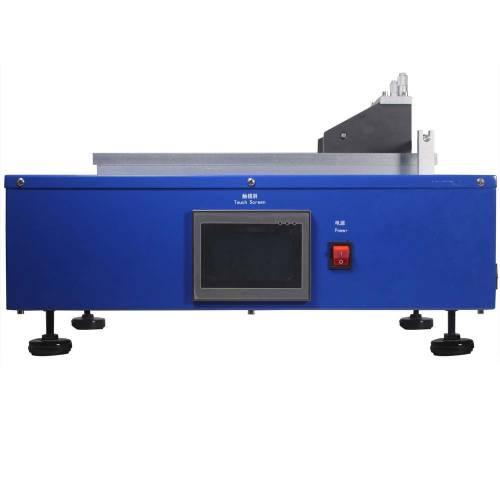Lith Corporation, founded in 1998 by a group of material science doctor from Tsinghua University, has now become the leading manufacturer of battery lab&production equipment. Lith Corporation have production factories in shenzhen and xiamen of China.This allows for the possibility of providing high quality and low-cost precision machines for lab&production equipment,including: roller press, film coater,mixer, high-temperature furnace, glove box,and complete set of equipment for research of rechargeable battery materials. Simple to operate, low cost and commitment to our customers is our priority.
A Lab Coater is specialized equipment designed for use in laboratory settings to apply coatings onto various substrates for research and development purposes. These machines are essential for developing new coating formulations, testing different materials, and optimizing coating processes before scaling up to full production. Lab coaters can simulate a wide range of industrial coating methods, making them invaluable tools in industries such as electronics, pharmaceuticals, packaging, and materials science.
Key Features
1. Precision and Control
Lab coaters offer precise control over coating parameters such as thickness, speed, pressure, and drying conditions. This level of control is critical for conducting accurate experiments and obtaining reproducible results.
2. Versatile Coating Methods
Depending on the model, lab coaters may support multiple coating techniques including knifeoverroll, slot die, gravure, reverse roll, and curtain coating. This versatility allows researchers to test and compare different application methods.
3. Small Scale Testing
Designed for smallscale operations, these machines typically handle smaller substrate sizes and lower material volumes than their industrial counterparts. This makes them ideal for initial feasibility studies and formulation trials without requiring large amounts of raw materials.
4. Compact Design
Lab coaters are often compact and easy to operate within laboratory environments. They are usually equipped with userfriendly interfaces that facilitate setup and operation.
5. Integration with Analytical Tools
Many lab coaters can be integrated with other analytical instruments (such as microscopes or spectroscopy devices) to assess the quality and properties of the applied coatings immediately after processing.
6. Customization Options
Some lab coaters offer modular designs that allow users to customize the machine according to specific needs, whether it's for applying different types of coatings or accommodating unique substrate dimensions.
Doctor Blade Coater
Applications
Research and Development: Used for developing and testing new coating materials and formulations across various industries.
Pharmaceuticals: Essential for coating tablets and capsules with formulations aimed at improving drug delivery, stability, and patient compliance.
Electronics: Utilized for creating conductive, insulating, and protective layers on circuit boards and other electronic components.
Battery Manufacturing: Employed in the development phase for coating electrodes with active materials to optimize battery performance.
Packaging: Applied for creating barrier films, enhancing food preservation, and adding functional or decorative elements to packaging materials.
Considerations When Choosing a Lab Coater
Application Requirements: Evaluate your specific needs regarding coating thickness, substrate type, and material compatibility.
Experiment Scope: Consider the range of experiments you plan to conduct and ensure the machine supports those requirements.
Budget Constraints: Balance between initial investment costs and longterm operational benefits, considering factors like maintenance, energy consumption, and potential productivity gains.
Ease of Use and Maintenance: Look for userfriendly interfaces and straightforward maintenance procedures to reduce downtime and training.
Scalability and Future Growth: Ensure the machine supports scalability and adaptability to future research demands or technological advancements.
Compliance Standards: Verify that the machine meets relevant industry standards and regulations, especially important in regulated fields like pharmaceuticals and food production.
By taking these factors into account, you can select a Lab Coater that not only fits your current R&D needs but also supports future growth and compliance requirements. Ensuring highquality, consistent coatings is fundamental to many manufacturing processes, making the selection of appropriate coating equipment a key decision for laboratories across various sectors. Manufacturers specializing in coating technology often provide a range of lab coaters tailored to different applications and scales of production. Consulting directly with these manufacturers can help identify the most suitable model for specific needs. Examples of such manufacturers might include companies known for their expertise in this field, such as Elcometer, BYK Additives & Instruments, and others renowned for providing precise and reliable coating solutions for laboratory use.




 Online service
Online service
